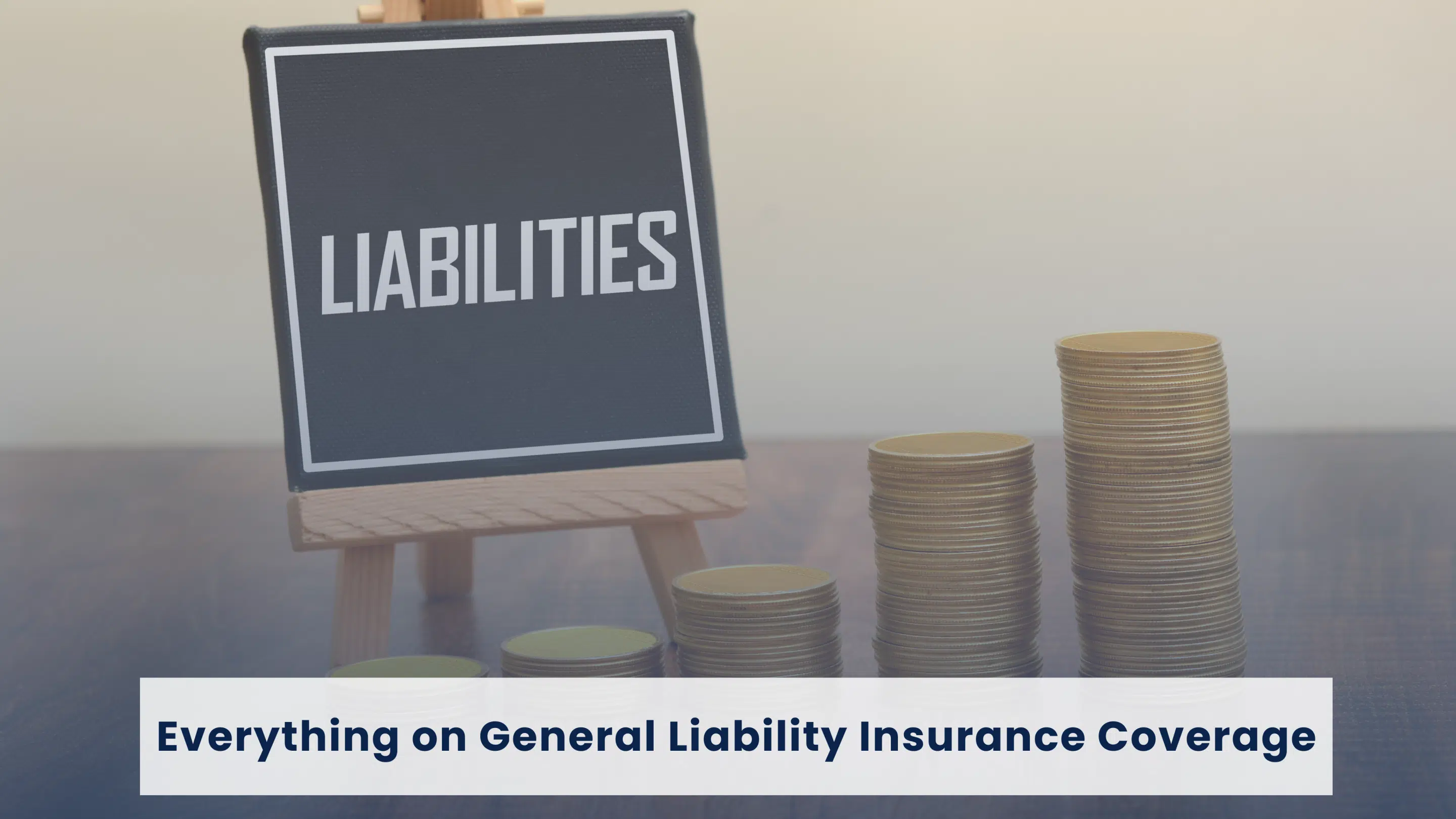What Is General Liability Insurance Coverage?
General liability insurance coverage (GL) is a type of business insurance that protects you from the financial impact of third-party claims. Specifically, these claims can include bodily injury, property damage, and personal or advertising injury that your business is held responsible for.
In simple terms, it helps cover costs if someone sues you or holds your business legally responsible for an accident or mistake that causes harm. For example: A customer slips on a wet floor at your retail store and breaks their arm. If this happens, GL insurance can help cover their medical bills and any legal expenses if they decide to file a lawsuit.
What Does General Liability Insurance Cover?
Here are the most common situations covered under a standard general liability insurance policy:
Bodily Injury
If someone (not an employee) gets injured on your premises or because of your operations, this coverage pays for medical expenses, legal fees, and potential settlements.
Property Damage
If you or your employees accidentally damage someone else’s property while doing business, general liability insurance helps cover the repair or replacement costs.
Personal and Advertising Injury
This includes situations like slander, libel, copyright infringement, or misappropriation of advertising ideas.
Legal Defense and Court Costs
Even if a claim is groundless, legal defense costs can add quickly. This coverage includes legal representation, court fees, and settlements or judgments.
What’s Not Covered by General Liability Insurance?
While general liability insurance covers a wide range of risks, it doesn’t cover everything. You may need additional policies for the following:
-
Employee injuries (covered by workers’ compensation insurance)
-
Damage to your own property (covered by commercial property insurance)
-
Vehicle-related accidents (covered by commercial auto insurance)
-
Professional errors or negligence (covered by professional liability insurance)
-
Cyberattacks or data breaches (covered by cyber liability insurance)
Riverbend Insurance can help you build a full coverage plan that closes these gaps and protects your business from every angle.
Who Needs General Liability Insurance?
Nearly every business can benefit from general liability insurance coverage. But for some industries, it’s essential. You likely need GL insurance if you:
-
Interact with clients or customers in person
-
Rent or own a commercial space
-
Perform services at client locations
-
Handle client property
-
Advertise your business online or in print
-
Work in construction, retail, food service, or other hands-on industries
In Colorado, many landlords and clients will also require proof of general liability insurance before signing a lease or contract. Need proof of insurance? Ask us about getting a Certificate of Insurance (COI) for contracts, vendors, or RFPs.
General Liability Insurance in Colorado: What Business Owners Should Know
Colorado business owners face unique risks. Slip-and-fall injuries on icy sidewalks, damage caused by subcontractors, or even a defamation lawsuit over a social media post can result in significant legal costs.
Having general liability insurance tailored for Colorado protects your company from local risks and ensures you’re meeting requirements specific to the state or your industry. For instance, contractors often need liability coverage to obtain permits and event planners may need GL insurance to rent venues. Moreover, retailers in snowy cities like Boulder or Fort Collins face heightened risk for injuries on slippery walkways
How Much Does General Liability Insurance Cost?
The cost of general liability insurance coverage depends on several factors, including: your industry and business activities; business size and revenue; number of employees; claims history; and coverage limits and deductible/
On average, small businesses in Colorado can expect to pay between $400 and $1,500 annually for a basic policy. High-risk industries like construction or manufacturing may pay more. Bundling your GL policy with other coverages like property insurance can reduce your overall premiums.
How to Choose the Right Coverage Limits
Your policy limit is the maximum amount your insurer will pay for a covered claim. The most common limits for small businesses are $1 million per occurrence with a $2 million aggregate. This means your policy would cover up to $1 million for any single claim and up to $2 million total during the policy term. Particularly, higher-risk businesses or those with client contracts may require larger limits. We’ll help you determine what’s appropriate based on your exposure and goals.
General Liability Insurance vs. Professional Liability Insurance
It’s easy to confuse general liability insurance with professional liability, but they protect against different types of risk. While GL covers physical injuries and property damage, PL covers financial loss due to your services, such as errors, omissions, or negligence
For example, if you run a marketing agency and a client sues you for a mistake in an ad campaign, professional liability insurance would be the coverage you need, not general liability. But, if your business provides consulting, design, healthcare, or technical services, you may need both.
How to Get Covered with Riverbend Insurance
At Riverbend Insurance, we understand the insurance needs of small and mid-sized businesses across Colorado. We specialize in providing personalized guidance and affordable protection so you can focus on growing your business without worrying about lawsuits or claims. Above all, our team takes the time to learn about your business, evaluate your risks, and help you choose the right general liability insurance coverage, no guesswork involved. Whether you operate in Denver, Aurora, Grand Junction, or anywhere in between, we’ll walk you through your options and explain everything in plain terms.
Ready to Get Covered?
Call us today or visit our website to get a free, personalized quote on general liability insurance coverage.


